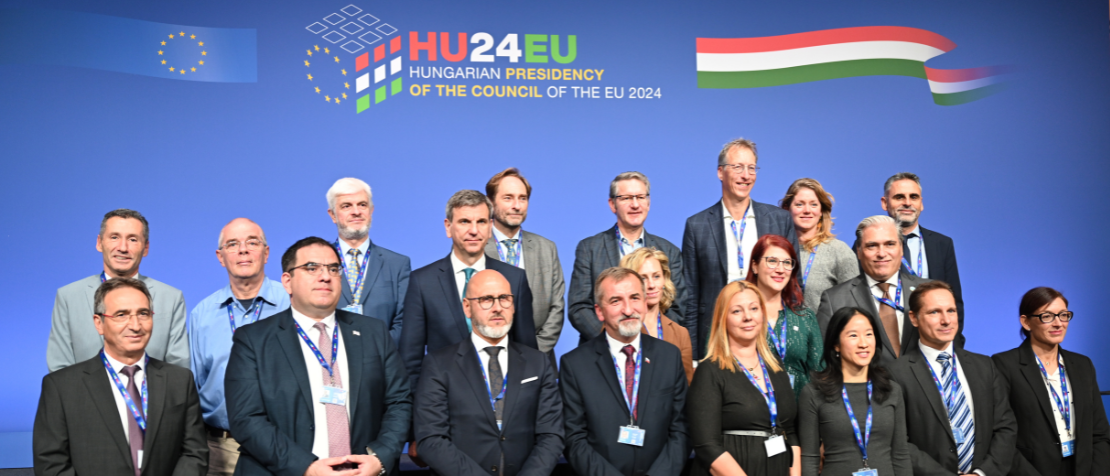Fostering collaboration to stem food loss and waste

©FAO/Sanja Knežević
Having marked the fifth International Day of Awareness of Food Loss and Waste on 29 September 2024, experts and observers reaffirmed that only a coordinated response can overcome the significant challenge this issue presents to achieving sustainable agrifood systems.
For over a decade, the Food and Agriculture Organization of the United Nations (FAO) has led efforts to reduce food loss and waste because of its crucial role in transforming agrifood systems to be more efficient, inclusive, sustainable, and resilient.
Collaboration is at the core of FAO's SAVE FOOD initiative to address food loss and waste. By forging partnerships with governments, food businesses, and civil society organizations, FAO facilitates the sharing of knowledge and best practices across Europe and Central Asia. This participatory approach is key for developing and implementing context-specific strategies and solutions.
This approach was explored in detail at the Conference on Food Waste Prevention, which was co-organized by FAO and the Ministry of Agriculture of Hungary on 1 October in Budapest. Government representatives and experts from 17 countries in Europe and Central Asia gathered to share key national developments in food waste prevention and to catalyse action through closer collaboration and alignment of actions.
“Despite significant advancements, challenges remain in the region,” said Viorel Gutu, FAO Assistant Director-General and Regional Representative for Europe and Central Asia at the opening of the conference. “Inefficiencies in agricultural production, inadequate storage facilities, and weaknesses in food processing and packaging continue to exacerbate food loss and waste. Consumer behaviour also plays a crucial role. A lack of awareness on sustainable food-related choices and practices perpetuate high levels of waste at the consumption stage.”
Hungarian Minister of Agriculture Istvan Nagy referred to food waste reduction as “one of the flagship priorities” for the Hungarian Presidency of the Council of the European Union. Noting its commitment to meet Sustainable Development Goal Target 12.3 to halve per capita food waste by 2030, Nagy highlighted that Hungary aims to reduce food waste at all levels.

©FAO/Matyas Temesfoi
Moreover, fragmented policies hinder progress, resulting in inconsistent standards and missed opportunities for collaboration. To effectively tackle food loss and waste, integrating reduction strategies into broader national policies and programmes is essential, fostering a cohesive approach to sustainability.
FAO’s work includes analysis of policy and regulatory frameworks related to food loss and waste management. By identifying gaps and working closely with national governments, FAO facilitates improvement of regulatory frameworks and the creation of environment conducive to the adoption of circular economy principles and investment in effective solutions.
Many countries in the region have made commendable progress in this area. Recently, Georgia and the Republic of Moldova adopted laws on the reduction of food loss and waste, facilitation of food donations, and enhancing food security.
FAO also supports the development and implementation of national strategies and action plans for food loss and waste prevention and reduction. With FAO’s technical assistance, Albania, Armenia, Azerbaijan, Bosnia and Herzegovina, Kyrgyzstan, North Macedonia, Tajikistan, Türkiye, Turkmenistan, and Uzbekistan have formulated strategies and plans for food loss and waste reduction. These plans encourage a holistic approach that fills knowledge and capacity gaps, strengthens policy frameworks, and stimulates action from food supply chain actors.
Consumer engagement also plays a vital role in these efforts, as targeted communication and media campaigns can improve awareness and stimulate behavioural change.
In Türkiye, the Ministry of Agriculture and Forestry, in close collaboration with FAO, launched a national movement against food loss and waste, “Save Your Food”, engaging over 21 million people and demonstrating the potential for widespread change. This initiative not only saved food valued at USD 80 million but also set two Guinness World Records for its public pledge to reduce food waste.
And in Albania, the “Do Good: Save Food!” campaign, launched jointly by FAO and Food Bank Albania, educated over 1 000 school children aged from five to 14 years on food waste prevention and reduction actions that they could do themselves, as well as on the impacts of food waste on the environment, economy, and food security.
To effectively address food loss and waste, it is essential to implement a combination of measures, including policy interventions, incentives for food businesses, and public education and engagement, all of which create a robust framework for the change. Collaborating with essential stakeholders, civil society and academic institutions, as well as engagement of public, will facilitate this change.
With consumer behaviour being a key driver in the reduction of food waste, particular attention was also given to the discussion of the various factors that contribute to food waste at the consumer level and innovative solutions to address these challenges. The experts from Behaviour Global, C40 Cities Climate Leadership Group, European Food Information Council (EUFIC), International Food Waste Coalition (IFWC), Wageningen University & Research, and Waste and Resources Action Programme (WRAP), called for more data on the causes of food waste and evidence of effective solutions that are required to design more impactful interventions at scale.
As countries continue to strengthen their commitment to reducing food loss and waste, the collaborative efforts of FAO, regional partners, and national governments are crucial in fostering a sustainable future for agrifood systems.

